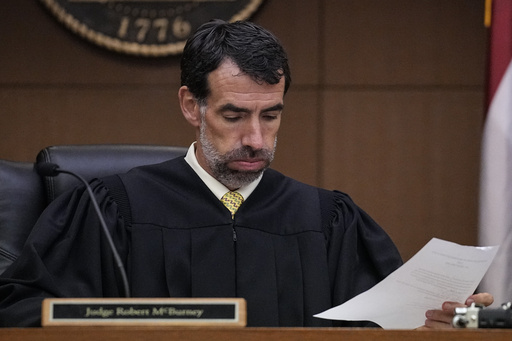
ATLANTA — A Republican election official in Georgia, a key state for presidential elections, is contesting a judge’s ruling that mandates she and other election leaders must affirm the results by a legally prescribed deadline.
Julie Adams, who serves on the election board of Fulton County—an area that encompasses a significant part of Atlanta and is recognized for its Democratic majorities—has initiated legal action demanding a ruling that her responsibilities as a board member are voluntary. She argues that she should have “full access” to “election materials.”
This month, Fulton County Superior Court Judge Robert McBurney issued a ruling stating that “no election superintendent or member of a board of elections and registration may refuse to certify or abstain from certifying election results under any circumstance.” In response, Adams lodged an appeal with the Georgia Court of Appeals, contesting the directive that she must vote in favor of certifying election results by the established deadline. She also challenges McBurney’s claim that her concerns should be aired in court through election challenges.
Georgia law stipulates that election superintendents, typically part of multi-member boards, are required to certify the results by 5 p.m. on the Monday following an election, or the Tuesday if the preceding Monday is a holiday. Due to this calendar, the deadline for certifying results for this year’s general election is set for November 12.
The certification process, which involves confirming the total votes, has turned contentious in the political arena following attempts by then-President Donald Trump to dispute his defeat in the 2020 election to Democrat Joe Biden. Earlier this year, several Republicans, including Adams, chose not to certify election results and even pursued legal pathways to evade having to endorse those results.
Concerns have been voiced by Democratic representatives and voting rights advocates that Trump supporters might also decline to certify outcomes if he were to lose to Democratic Vice President Kamala Harris in the upcoming presidential election next month.
In his order, McBurney emphasized that Georgia law does not empower county election officials to declare whether fraud has occurred or prescribe actions based on those claims. Instead, any suspicions they may have should be communicated to the proper authorities for potential criminal prosecution or as grounds for challenging an election through judicial means, but must not serve as an excuse for withholding certification.
Adams’ appeal contends that McBurney’s advice regarding addressing concerns through election challenges in court is “improper and insufficient” if she identifies instances of fraud or misconduct.
